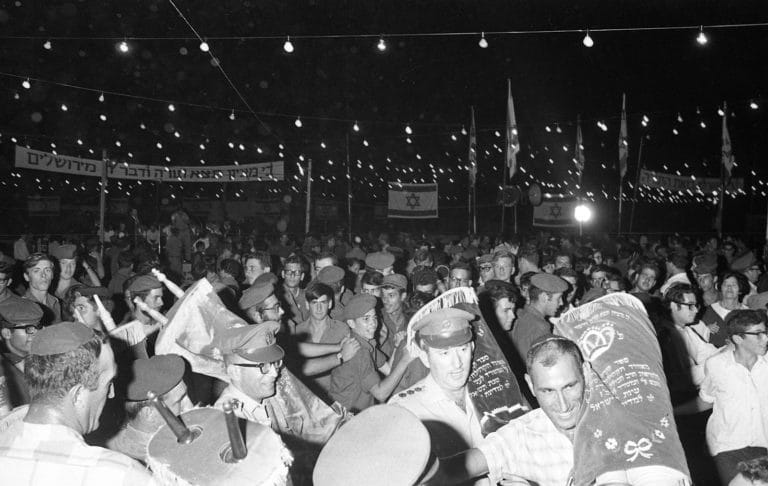
Shemini Atzeret and Simchat Torah are the culmination of the High Holiday season that starts with the Hebrew month of Elul and Rosh Hashanah, and continues with the 10 Days of Repentance, Yom Kippur and Sukkot. Here’s a rundown of everything you need to know.
Read more: Get our guides to all the Jewish holidays.
What are Shemini Atzeret and Simchat Torah (quick version)?
Shemini Atzeret and Simchat Torah immediately follow the seven-day festival of Sukkot. They are celebrated as one day in Israel and two days in the Diaspora. The precise meaning of Shemini Atzeret is unclear, but it is thought to be a time of bonding between God and the Jewish people. Simchat Torah is a festive and joyful celebration of the Jewish people’s love of and commitment to Torah.
Interestingly, Shemini Atzeret and Simchat Torah have no inherent mitzvot. They are observed by beginning the recitation of the prayer for rain (tefilat geshem), singing and dancing with the Torah, completing the yearly cycle of Torah readings and beginning the next cycle and refraining from work.
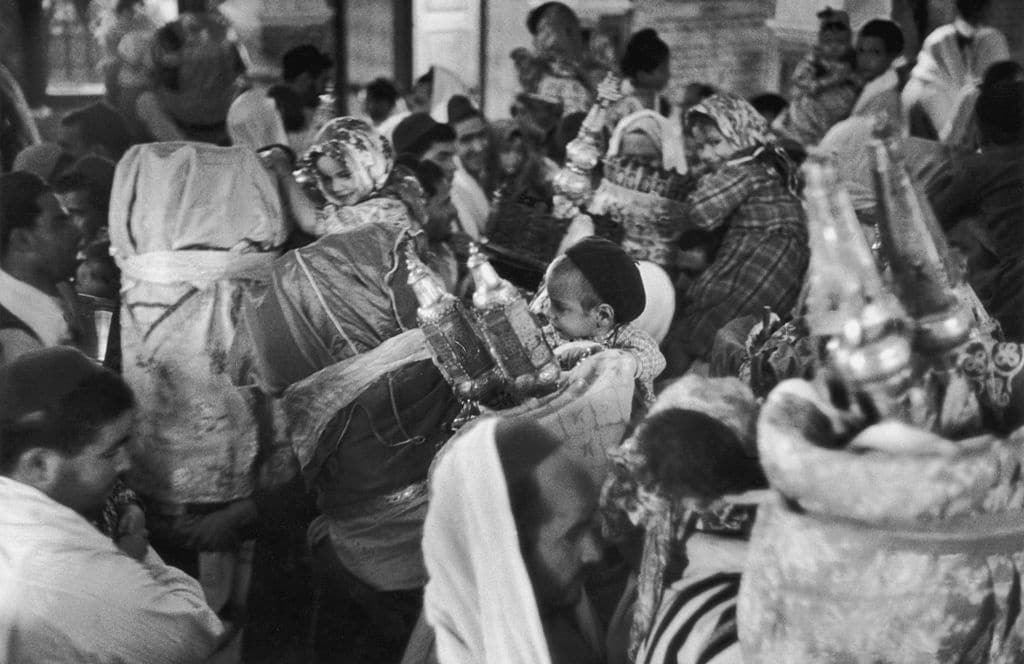
When are Shemini Atzeret and Simchat Torah in 2024?
Shemini Atzeret and Simchat Torah take place on the 22nd of the Hebrew month of Tishrei (in Israel) and on the 22nd and 23rd of Tishrei in the Diaspora. It begins the evening of Wednesday, Oct. 23, 2024, and goes through the evening of Friday, Oct. 25, 2024.
Are Shemini Atzeret and Simchat Torah a part of Sukkot?
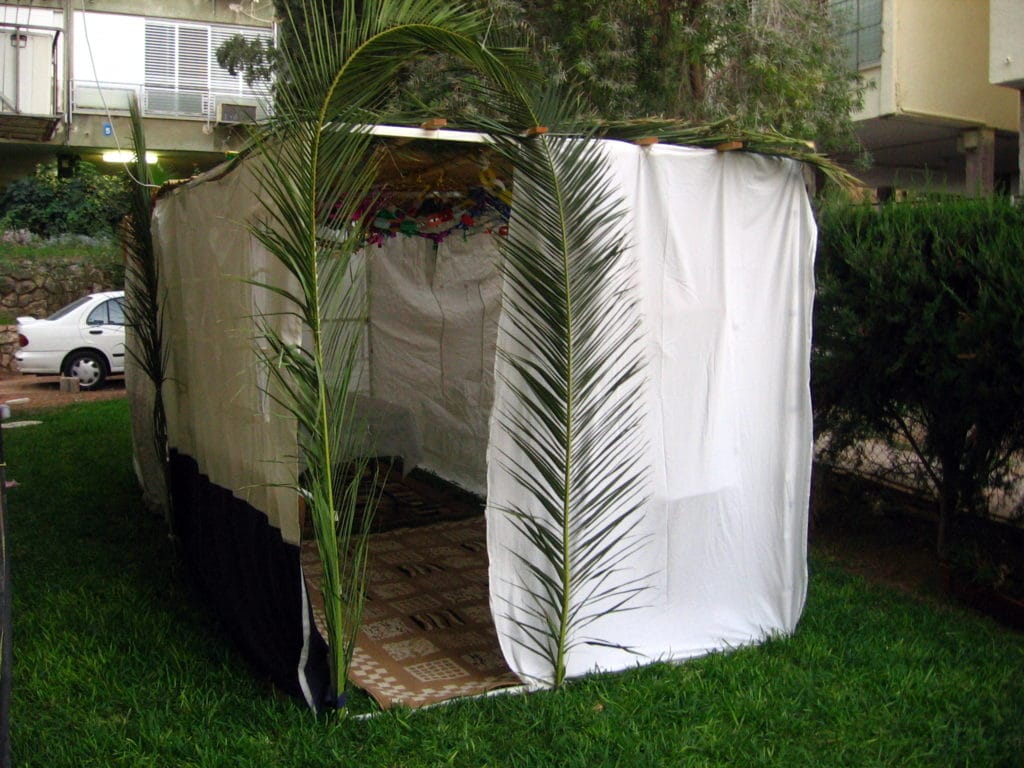
The name of Shemini Atzeret as “the eighth day” would suggest that it is a part of Sukkot. However, it is technically a separate holiday.
The Talmud (Sukkah 47b – 48a) states, “The eighth day is a festival in and of itself (regel bifnei atzmo).” Because of this, the Sukkot observances (dwelling in a sukkah and shaking the lulav and etrog) are not included in these two days. However, many choose to still have meals in the sukkah on Shemini Atzeret (but unlike Sukkot, no blessing is recited), and for many, there is an obligation to still dwell in the sukkah without a blessing (for a deeper exploration of this, read this article).
How to greet someone on Shemini Atzeret/Simchat Torah
To greet someone at this time, you can simply say “chag sameach” (happy holiday!). You could also wish someone a happy Simchat Torah.
What is Shemini Atzeret?

Shemini Atzeret means the “Eighth Day of Assembly” and immediately follows the seven-day festival of Sukkot. Shemini Atzeret is mentioned in the Torah but its meaning is unclear.
Vayikra (Leviticus) 23:36 states, “On the eighth day you shall observe a sacred occasion and bring an offering by fire to the LORD; it is an atzeret: you shall not work at your occupations.”
The Midrash interprets atzeret as deriving from the root atzar, to “tarry” or “hold back” and explains the day this way: “It is similar to the case of a king who invited his children to a banquet for a certain number of days. When the time arrived for them to take their departure he said, “Children, I beg of you, stay one day more with me; it is so hard for me to part with you!”
Similarly, on Shemini Atzeret, the Jewish people have spent the entire holiday season praying, rejoicing and striving for closeness with God and are about to return to normal life. God says to the Jewish people, “Stay one more day with Me!” That (according to the Midrash which is quoted by Rashi) is the meaning of Shemini Atzeret: it is one more day of closeness with God before going back to business as usual.
Rabbi Yaakov Wolbe took this mashal (parable) one step further: If it is difficult for the king to part ways with his children on one particular day, what happens the next day? Won’t it be equally difficult for the king then too? Isn’t this just kicking the can down the road? According to Rabbi Wolbe, what is happening on Shemini Atzeret and Simchat Torah is that God and the Jewish people “are forging a bond that’s going to endure even when we go our separate ways.” The connection forged at this time is so deep that it will withstand the relative “distance” between the Jewish people and God post-holidays.
On Shemini Atzeret, work is not permitted. The prayer for rain (tefilat geshem) is recited beginning on Shemini Atzeret since the day marks the start of the rainy season in Israel. (Until Passover, the phrase “masheev ha’ruach u’moreed hagashem,” “Who causes the wind to blow and the rain to fall” is recited in the Amidah prayer.)
What is Simchat Torah?
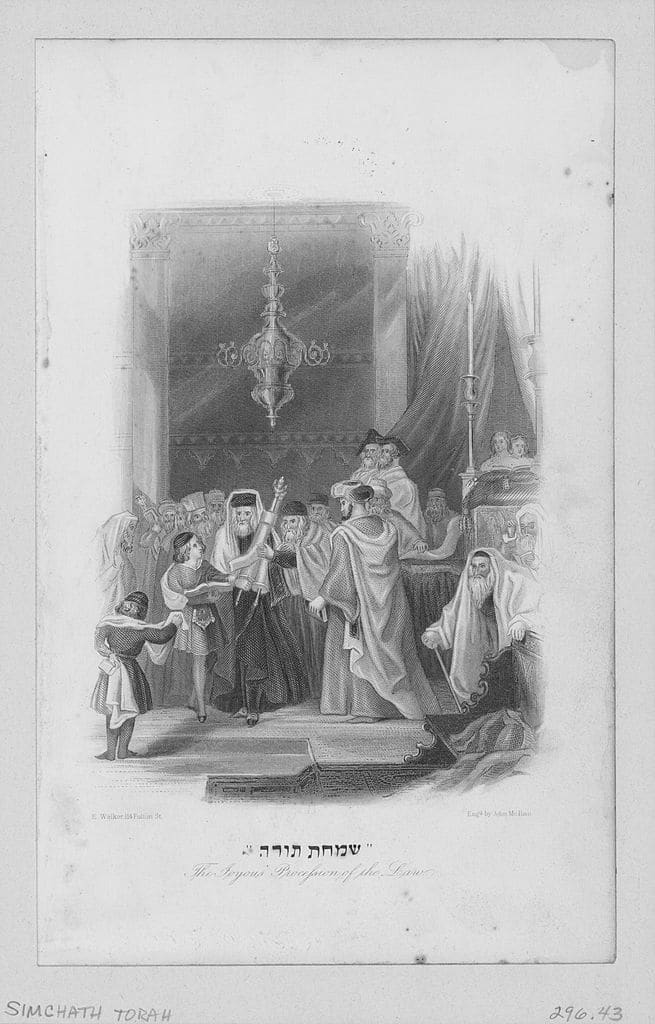
Simchat Torah literally means “joy of the Torah” and is the grand finale of the holiday season (in Israel it is integrated into Shemini Atzeret).
Simchat Torah is not mentioned in the Torah or Talmud. It has become a day on which the Jewish people celebrate and express their love of the Torah and the never-ending cycle of reading and studying it. On this day, we complete the yearly cycle of Torah readings (the ending of Sefer Devarim/the Book of Deuteronomy) and immediately start the cycle again from the beginning (the first part of Sefer Beresheet/the Book of Genesis).
The celebration begins in the evening with Maariv. All of the Torah scrolls are removed from the ark and are carried around the interior of the synagogue seven times. These processions are called hakafot and symbolize the continuous cycle of Torah readings. As this is happening, the Torah scrolls are passed to different members of the congregation so that many people have an opportunity to participate. Everyone in the congregation is invited to dance and sing with the Torah scrolls, and the scene is extremely festive and joyful.
It is traditional to read the last Torah portion several times and invite everyone in the congregation to be called up for an aliyah (blessing on the Torah). The next day, the celebration continues with seven more hakafot and Torah readings of the last portion of Devarim (called V’Zot HaBracha) and first portion of Beresheet (called Beresheet).
During the Shemini Atzeret/Simchat Torah holiday, which starts tonight, Jews around the world will complete one annual Torah reading cycle and start another. I'll be one of them: https://t.co/GXXVf2gyum pic.twitter.com/BNWX5zAl7I
— Avi Mayer (@AviMayer) October 20, 2019
Torah and Haftarah readings:
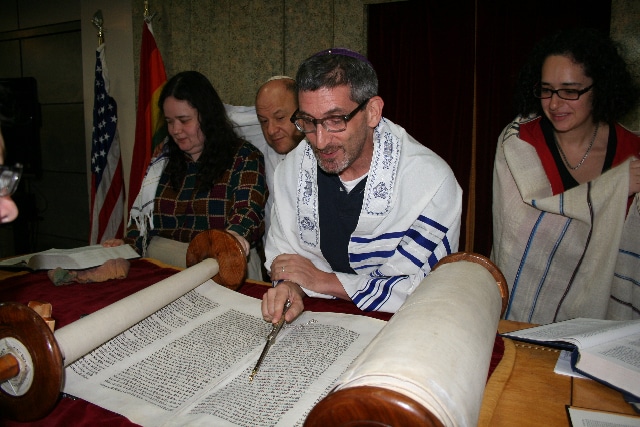
Shemini Atzeret:
- Devarim (Deuteronomy) 14:22 – 16:17 — describes tithing, sabbaticals and pilgrimage
- Bamidbar (Numbers) 29:35 – 30:1 — describes the sacrifice brought on the eighth day after the beginning of Sukkot
- Melachim I (I Kings) 8: 54-66 — King Solomon blesses the people on the eighth day of Sukkot and bids them farewell
Simchat Torah:
- Devarim (Deuteronomy) 33:1 – 34:12 — Moses gives the Israelites a final blessing, death of Moses, Joshua becomes the new leader
- Bereshit (Genesis) 1:1 – 2:3 — God creates the world
- Bamidbar (Numbers) 29:35 – 30:1 — describes the sacrifice brought on the eighth day after the beginning of Sukkot
- Yehoshua (Joshua) 1 — following the death of Moses, Joshua begins to lead the people
How to ask for time off for Jewish holidays
Want advice on how to ask for time off for Shemini Atzeret/Simchat Torah and other Jewish holidays? Here’s how you can ask your school or workplace for time off for religious holidays.
Originally Published Oct 16, 2022 06:12PM EDT
